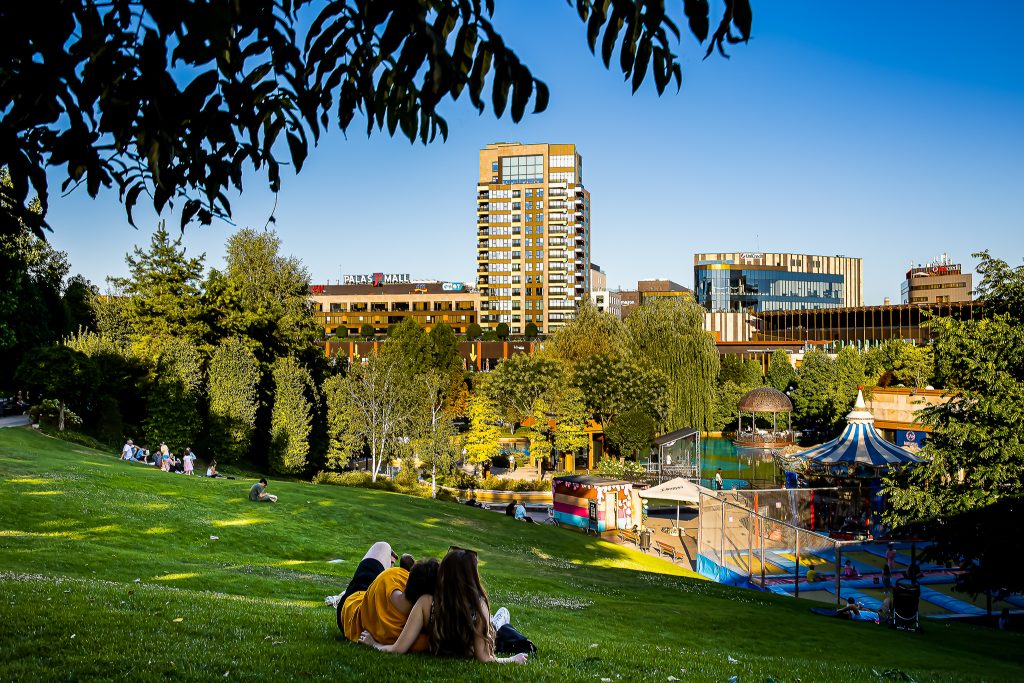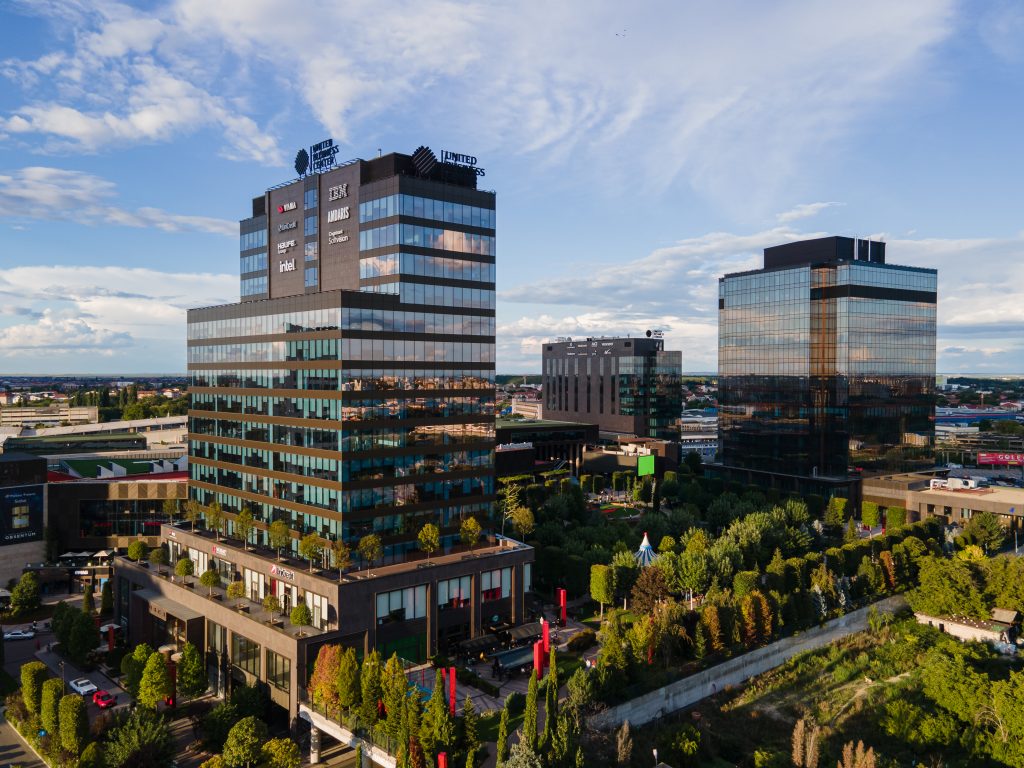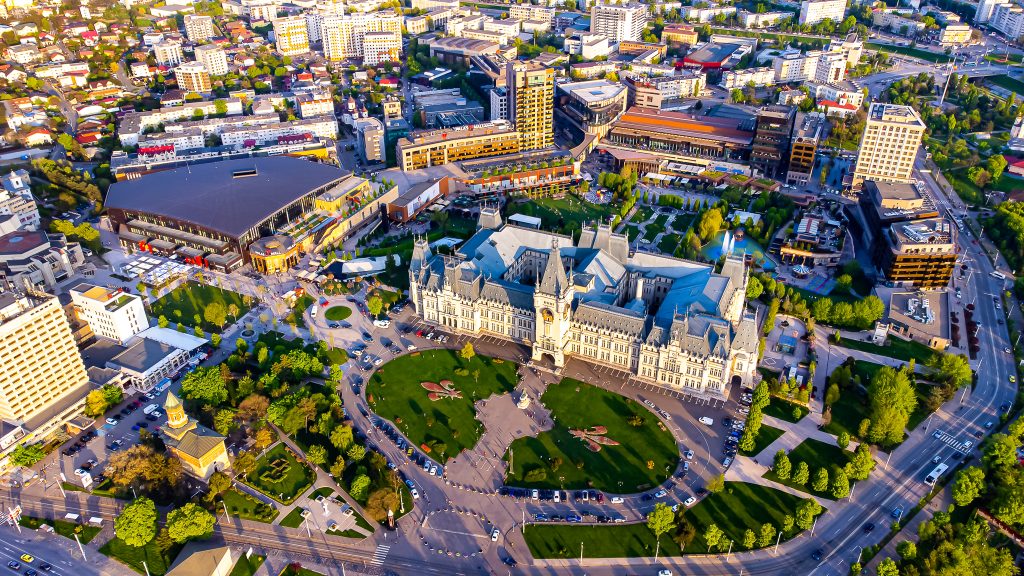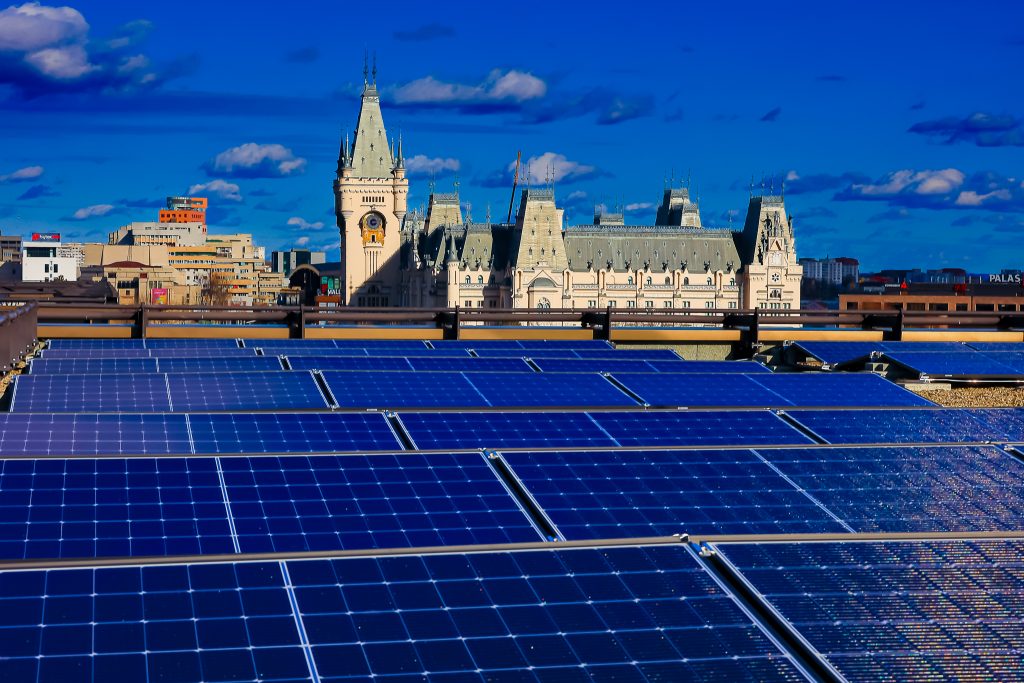:quality(80)/business-review.eu/wp-content/uploads/2023/06/Dan-Adrian-Chelaru-Group-Sustainability-Officer-IULIUS-scaled.jpg)
Business Review sat down with Dan Adrian Chelaru, Group Sustainability Officer at IULIUS, to talk about the company’s perspective on green & sustainable developments, urban regeneration projects, building smart & sustainable communities, and more.
What does the green and smart buildings concept mean for your company and how is it implemented in the projects you develop?
For IULIUS, sustainability is an integral part of its business model, as evidenced by the complex urban regeneration projects either developed or under development, which add substantially to the life of the communities and the cities. IULIUS projects are innovative concepts that integrate large gardens, buildings designed to be as efficient and resilient as possible in the face of new climate challenges, environmentally and people friendly, contributing significantly to economic development, investment and tourism attractiveness, translated into increased quality of life. But beyond the operational aspects, we guide our steps according to a strategy designed to implement specific actions in line with the company’s vision, mission and values.

The portfolio of IULIUS Company is comprised of green buildings whose high level of performance is attested by their certifications. All buildings are LEED certified, fitted with technologies measuring up to the highest standards that contribute to their efficient operation. We try to take a holistic approach to assessing the environmental impact of a building as early as its design phase, taking into account several factors that will help minimize carbon emissions throughout the building’s life cycle. Despite higher investment costs, sustainable buildings help reduce long-term operational costs through more efficient use of resources and mitigate environmental impacts.
We take care to implement green & smart buildings type best practices and concepts, integrating advanced technologies in our projects, such as building automation systems or energy monitoring and indoor climate management solutions, which help achieve a high level of air quality and allow us to optimize the operation of buildings so as to reduce the environmental impact and provide the most pleasant experience for the people who occupy them.
How do you contribute to building sustainable communities by means of your projects?
A coherent urban regeneration project strategy, consistently pursued throughout its implementation, directly contributes to building strong and sustainable communities. Our strategy is built on many important aspects, such as the newly created gardens in Palas Iași, Iulius Town Timișoara and Iulius Cluj-Napoca, a hallmark of IULIUS projects, with the community becoming attached to these gardens as they have become important urban and social landmarks.

Then there is the company’s engagement towards education, through various programs designed to develop and integrate local talents. One such example is the “Real Estate Business Management” class taught by specialists from IULIUS at the Faculty of Economics and Business Administration of Iași, because the responsibility of IULIUS company as a developer, as well as a member of the community, goes beyond the scope of business. Then we have our involvement in major events in our country, such as the Romanian Creative Week in Iași or in organizing events of our own, such as the Movie Nights in Cluj-Napoca or Picnic in my Town in Timișoara. Organizing recycling campaigns or spreading awareness on the importance of these actions, planting trees, donating blood, and harnessing local potential, especially when it comes to young people, through various competitions, such as the art competition to create the symbol of Family Market Miroslava. Through the projects it developed in Iași, Timișoara, Cluj-Napoca and Suceava, IULIUS Company has also created approximately 35,000 jobs that have led to the retention of young talent in their hometowns and thus also contribute to an increased sense of local belonging. Furthermore, we are planning a strategy to reduce carbon emissions in all eight of our projects for which we have signed a partnership with the International Finance Corporation, a member of the World Bank Group. Other constant concerns also include the use of quality design in terms of designing low-impact, climate-resilient buildings, mitigating the urban heat island effect by planting tens of thousands of trees and shrubs, both in gardens and atop terraces, as can be seen in Palas Campus, or in the lobbies of the United Business Center office buildings.
Waste management is central to our efforts to reduce our environmental impact. In this respect, we have successfully increased the percentage of recyclable waste, both through better collection-at-the-source and by increasing the percentage of waste recovery, in our pursuit to achieving the Zero Waste to Landfill target. Given the specific nature of our business, a substantial percentage of the waste mix is organic waste, which is composted, thus helping to reduce the amount of landfill waste, an major goal in our sustainability strategy.
Mixed-use complexes also have dedicated infrastructure for alternative means of mobility, secure parking for them, showers and charging stations for electric vehicles. The excellent levels of accessibility help to reduce travel needs, as our projects are located close to intermodal urban transit hubs.

What does a green, smart and sustainable city mean from a real estate perspective?
From our perspective at IULIUS, we cannot speak of a green city without environmental impact awareness and responsible use of natural resources, as well as the implementation of innovative solutions for the efficient management of water, energy, etc. In addition to this, we promote alternative urban mobility and the use of sustainable materials, which are also reflected in all our projects.
When we refer to sustainable cities, in addition to the above, we also include integrated urban planning, including optimal expansion of built-up areas, green spaces accessible to residents, championing social diversity and growing the local economy in line with sustainable principles. The local community is also involved in the decision-making process, as was the case with the public consultations in Iași, where we also organized an international architecture competition for a new development in the city center, and people were able to have their say on what they wanted; the same approach was adopted in Cluj-Napoca, for the largest urban regeneration project developed to this date in Romania, worth over half a billion Euro, which will transform the Carbochim industrial platform, as well as for the expansion of Iulius Mall Suceava. It also entails incorporating social, economic and environmental aspects for balanced development with a long-term vision.
A smart city refers to the use of technology and digital infrastructure to streamline the operation of projects and to facilitate interaction between the community and the public or private sector, as well as the use of IoT systems dedicated exclusively to buildings, as well as monitoring and control solutions for the consumption of energy and various resources.
What are the main technologies included in the projects of your company?
As mentioned above, all our projects use efficient technologies measuring up to the highest of standards, which also allow us to obtain the best green certifications, whose certification systems are constantly evolving. The new projects under development are nZEB buildings, through which we aim to achieve a high level of energy efficiency and alternative energy sources, especially on-site sources. The buildings are fitted with automatic monitoring of the main building parameters via sensors installed in key areas; all the meters are smart and programmable according to the needs and specifics of the building (office, retail). Lighting is based on LED technology and is largely adaptive (dimming), depending on the intensity of natural lighting. We are also the only real estate company in Romania to have implemented photovoltaic panels on all 8 properties in our portfolio this year, which will produce 5,500 MWh annually across the group and will save 10% of the total energy. The investment exceeds 3.5 million Euro.




:quality(80)/business-review.eu/wp-content/uploads/2024/06/Primark-Store-Front.jpeg)



:quality(80)/business-review.eu/wp-content/uploads/2024/06/22C0420_006.jpg)

:quality(80)/business-review.eu/wp-content/uploads/2024/06/COVER-1-4.jpg)



:quality(50)/business-review.eu/wp-content/uploads/2024/05/Iulius-Mall-Iasi.jpg)
:quality(50)/business-review.eu/wp-content/uploads/2024/04/Oana-Diaconescu.jpg)
:quality(50)/business-review.eu/wp-content/uploads/2024/02/sebastian-mahu-iulius.jpg)
:quality(80)/business-review.eu/wp-content/uploads/2024/06/br-june-2.jpg)
:quality(50)/business-review.eu/wp-content/uploads/2024/07/VGP-Park-Timisoara_-8thbuilding_iulie-24.jpg)
:quality(50)/business-review.eu/wp-content/uploads/2024/07/America-House-Offices-Bucharest-Fortim-Trusted-Advisors.jpg)
:quality(50)/business-review.eu/wp-content/uploads/2024/07/BeFunky-collage-33-scaled.jpg)